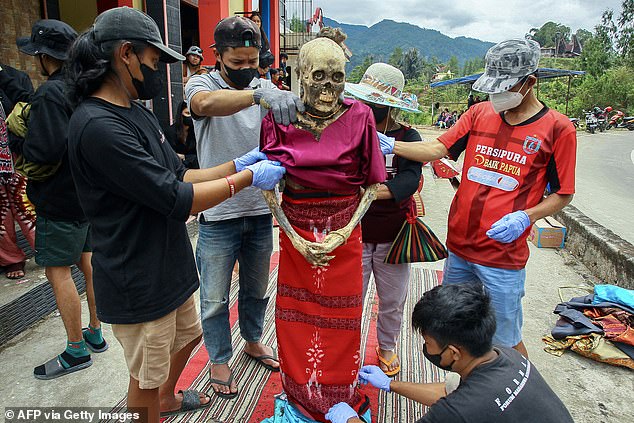- The Toraja people exhume their loved ones and care for their bodies.
- Their coffins are cleaned and they are given clean clothes.
- The ceremony takes place approximately every four years.
The mummified ancestors of a rural Indonesian tribe have been exhumed, arranged and put on display as part of an intricate burial ritual.
Every four years, the Toraja people, who live in South Sulawesi, in the centre of the archipelago, unearth the graves of their ancestors to meticulously care for their bodies.
The bodies are dug up, cleaned, sun-dried to ensure their longevity and dressed again in their new clothes, in a ceremony known as Ma’nene, which translates as “care of the ancestors” or “cleansing of the corpse.”
Video footage from Liang Lo’ko’ Kuku, a small village home to Toraja people, shows members of this community crowding around stone tombs and traditional Toraja graves and digging their coffins out of the ground.
Villagers were seen posing with their dead ancestors, who had dry, papery skin after spending years in the ground.
The mummified ancestors of a rural Indonesian tribe have been exhumed, arranged and put on display as part of an intricate burial ritual.
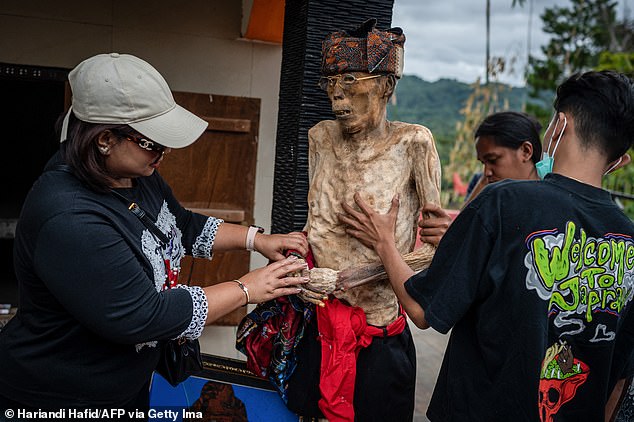
Every four years, the Toraja people unearth the graves of their ancestors to meticulously care for their bodies.
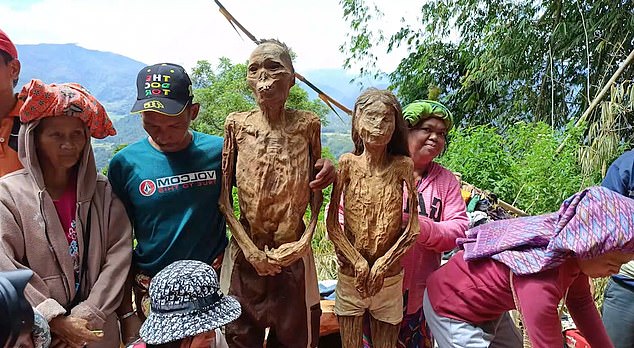
The bodies are dug up, cleaned, sun-dried to ensure their longevity, and dressed again in their new clothes.
A man was seen stroking the head of a dead man who was so well preserved that his hair could still be seen.
Villagers were then seen placing the bodies of their relatives back into their coffins with new, modern clothes.
While many were seen wearing traditional sarongs, long pieces of cloth favored in South and Southeast Asia, many were also seen wearing modern sunglasses and belts.
The ceremony takes place in Torajan villages throughout the region throughout the month of August.
According to HeritageDaily, the Toraja people do not view death as a singular event, but rather the gradual passage of the soul into the afterlife.
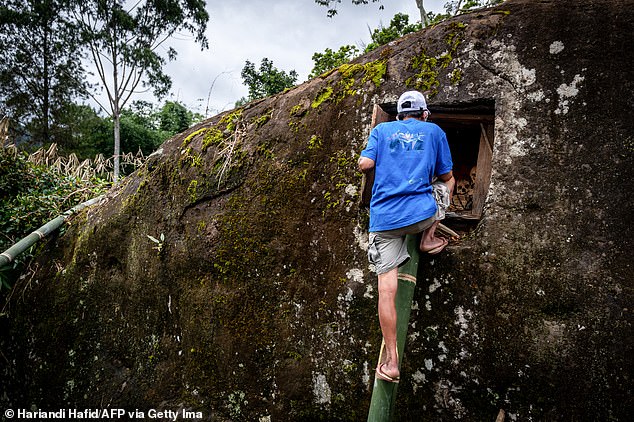
A member of the Toraja ethnic group opens the grave of his relatives during the traditional ritual known as Manene in Pangala, South Sulawesi, on August 27, 2024.
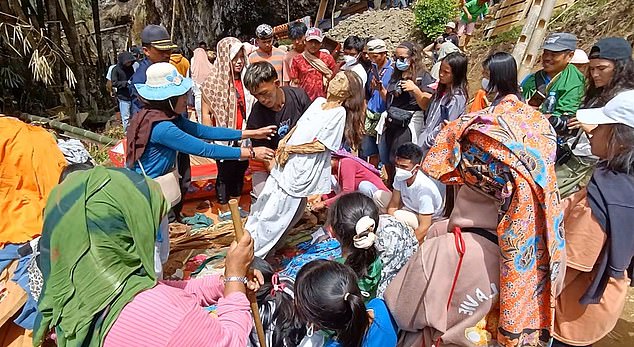
The ceremony takes place in Torajan villages throughout the region throughout the month of August.
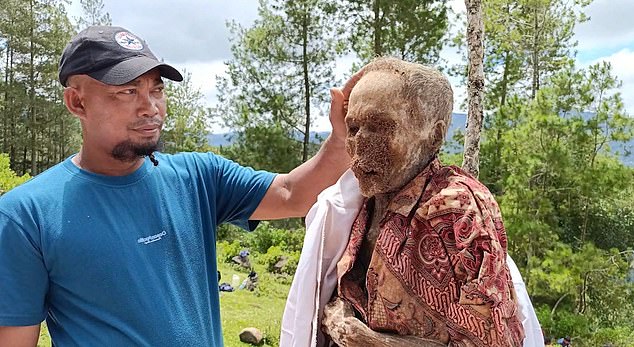
Villagers were seen posing with their dead ancestors, who had dry, papery skin after spending years underground.
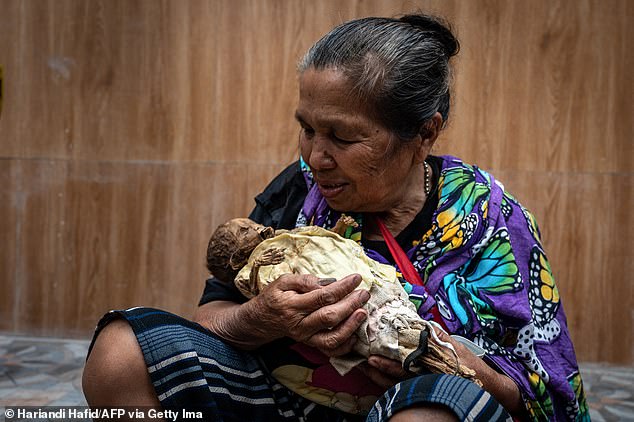
A member of the Toraja ethnic group holds the exhumed body of her baby, who died in 1988, during the traditional ritual known as Manene in Pangala, South Sulawesi, on August 27, 2024.
Therefore, they consider that the bodies of recently deceased people still need to be cared for.
According to the New York Times, locals believe the ceremony began with a local hunter named Pong Rumasek, who lived hundreds of years ago, although the authenticity of this myth is considered questionable at best.
He is said to have found an abandoned corpse in the jungle. Touched by the stranger’s fate, he took charge of the corpse and dressed it in his clothes.
Since then, Pong was said to have been blessed with good luck and abundant hunting and harvests.


